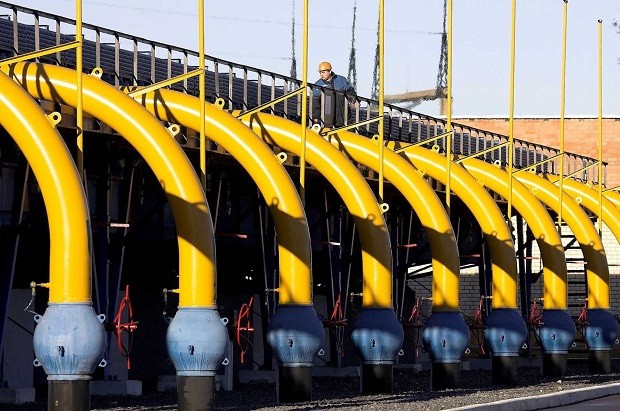(VOVWORLD) - Due to the limited global supply of fuel, price hikes, and unusually severe weather, countries in North America and Europe are having difficulty ensuring energy security. Governments have taken unprecedented steps to improve the situation, but the problem is proving resistant to their efforts.
 A gas compression station of the Yamal-Europe gas pipeline near Nesvizh, Belarus (photo: AFP/VNA) A gas compression station of the Yamal-Europe gas pipeline near Nesvizh, Belarus (photo: AFP/VNA) |
Fuel prices in the US and the EU are much higher than in 2021, stoking the highest inflation in decades. Unusual heatwaves are another factor threatening energy security on both sides of the Atlantic.
Tense energy situation
Gas prices in the US have dropped from a peak of 5 USD/gallon in mid-June to below 4.5 USD/gallon. During an online meeting with economic advisers, US President Joe Biden said gas prices in some places have fallen nearly a dollar and Americans can find gas for 3.99 USD or less at more than 30,000 gas stations in 35 states.
But economists say 4 USD/gallon is twice the gas price when President Biden took office in January 2021. This is a matter of great concern to the Biden administration with only 3 months left before the congressional midterm elections in November.
The situation in the EU is no better. Gas prices have surged as supplies have dwindled from Russia, the EU’s largest supplier. There is concern that the EU has insufficient fuel reserves to get through the winter.
On July 21 Germany approved a special emergency relief package worth 15 billion to bail out Uniper, Germany’s second largest energy company.
On July 18 Uniper announced that it has suffered a loss of tens of millions of euros a day since Russia cut its gas supply to Germany in June. Uniper had to start buying gas from other sources at a higher price, but has used up the loan limit of 2 billion euros from the state-owned investment bank KfW, and will have to apply for an additional quota.
French Minister for Energy Transition Agnes Pannier-Runacher said last Sunday that air-conditioned shops throughout France will have to keep their doors shut or risk a fine. France and most other EU countries are experiencing their worst heatwaves in decades.
Seeking solutions
President Biden recently took a trip to the Middle East to urge oil-rich countries to increase oil production to reduce global fuel prices. The US and Canada have tried to reach a new energy agreement with Mexico to create opportunities for US companies to access that market.
Bloomberg news agency last week cited ship-tracking data which showed that Europe has increased crude oil purchases from Middle East countries to compensate for the reduced supply from Russia in response to Western sanctions. By the middle of July, Europe had imported twice as much crude oil from the Middle East as it did in all of 2021.
Not every country is getting less fuel from Russia. Hungary said it will buy 700 million cubic meters of natural gas in addition to the amount specified in its long-term contracts with Russia. Hungarian Foreign Minister Peter Szijjarto tweeted on July 20th that he was visiting Russia to negotiate a fuel purchase.
Hungary is the European country most reluctant to impose energy sanctions on Russia. Hungarian Prime Minister Viktor Orban on July 15 said that the EU "shot itself in the lung" by imposing sanctions on Russia. On July 23, he continued to assert that sanctions are not the solution to the Ukraine crisis. Some experts have been saying that the Hungarian Prime Minister’s stance should be given careful consideration at an extraordinary meeting of the Energy Council in Brussels on Tuesday.